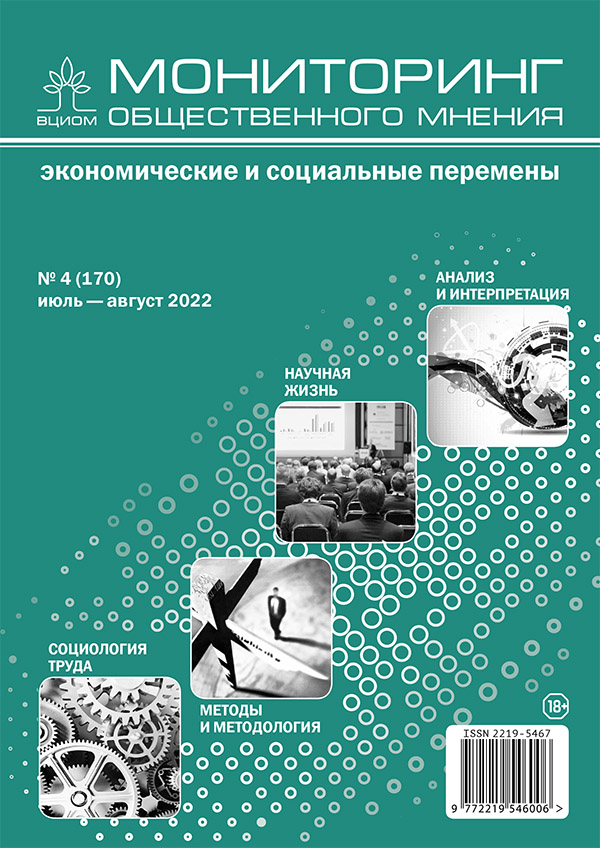Роль персональных психологических ресурсов в объяснении возрастных неравенств здоровья в странах Европы
DOI:
https://doi.org/10.14515/monitoring.2022.4.2167Ключевые слова:
здоровье, возрастные неравенства, психологические ресурсы, медиативные эффекты, страны Европы, Европейское социальное исследование, ESSАннотация
В статье рассматриваются ухудшение здоровья с возрастом и возможности его объяснения, помимо естественных процессов старения организма, влиянием нарастающего дефицита психологических ресурсов личности, необходимых для преодоления жизненных тягот и вызываемых ими стрессовых состояний. С помощью регрессионного анализа, позволяющего оценивать посреднические эффекты, исследуются данные массовых опросов Европейского социального исследования (ESS Round 6) для двух групп стран, отличающихся слабым и сильным социальным государством, а также проводится двухуровневое моделирование с использованием сведений о 27 странах Европы, позволяющее выявить зависимости непрямых эффектов от контекстуального модератора — государственных расходов на здравоохранение.
Результаты показывают, что во всех странах на поддержание здоровья влияют психологические ресурсы. Они позволяют отчасти объяснить возрастные различия самочувствия — играют роль медиатора между возрастной структурой и связанными с ней неравенствами в здоровье: с возрастом люди утрачивают психологические качества, необходимые для преодоления жизненных трудностей, и это усугубляет проблемы со здоровьем у пожилых людей. Особенно заметны такие медиативные эффекты в странах со слабым социальным государством — при восточноевропейском режиме обеспечения социальных гарантий или невысоких расходах государства на здравоохранение. В этих странах представителям уязвимых слоев, включая людей в старших возрастах, труднее сохранить психологическую уверенность в собственных силах и возможности изменений жизни к лучшему, поскольку им во многом приходится рассчитывать только на себя. Социально-демократический режим, предоставляя широкие социальные гарантии и равный доступ к качественным медицинским услугам, создает благоприятные условия для сохранения психологических свойств, препятствующих физиологическому старению и утрате здоровья. В статье обсуждаются медиации, связанные с такими качествами, как автономия и контроль, оптимизм, оценка своего «я», устойчивость и состоятельность.
Загрузки
Опубликован
Как цитировать
Выпуск
Раздел
Лицензия
Copyright (c) 2022 Мониторинг общественного мнения: экономические и социальные перемены

Это произведение доступно по лицензии Creative Commons «Attribution-NonCommercial-ShareAlike» («Атрибуция — Некоммерческое использование — На тех же условиях») 4.0 Всемирная.






